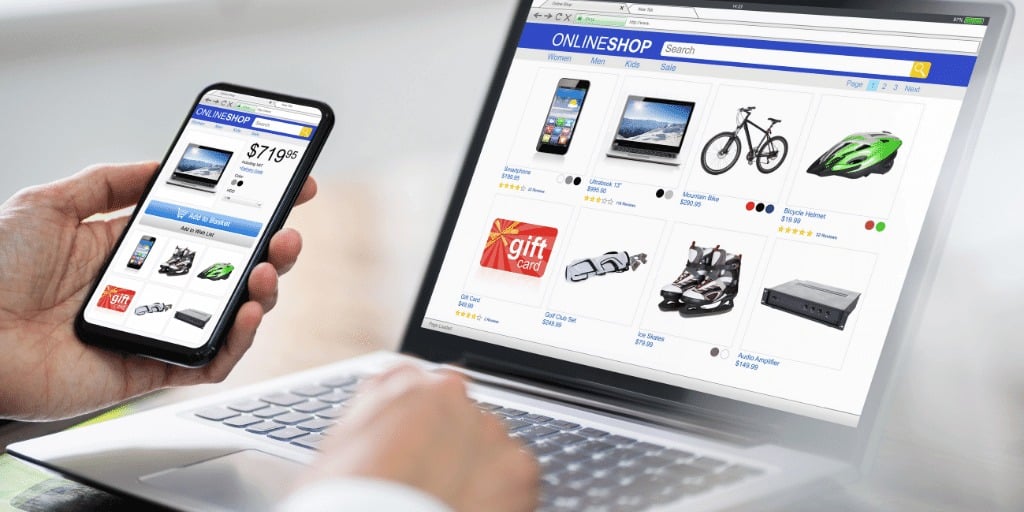10 Must-Have Features for a Successful Nigerian Ecommerce Website
- 50 Views
- Tizzleblog Team
- June 12, 2023
- Ecommerce Tips
In today’s digital age, ecommerce has become an integral part of the Nigerian business landscape. With the increasing number of online shoppers in the country, it is crucial for Nigerian ecommerce websites to have certain features in order to succeed. In this article, we will explore the 10 must-have features for a successful Nigerian ecommerce website. From an intuitive user interface to secure payment gateways and efficient customer service, each of these features plays a vital role in enhancing the user experience and driving business growth. Throughout the article, we will provide real examples to illustrate each point and showcase the best practices in the Nigerian ecommerce industry.

1. Intuitive User Interface
A user-friendly and intuitive interface is the cornerstone of any successful ecommerce website. It is essential for Nigerian websites to have a design that caters to the needs and preferences of the local audience. The interface should be visually appealing, easy to navigate, and provide a seamless browsing experience. Nigerian ecommerce giant, Jumia, sets an excellent example in this regard. With its clean and organized layout, Jumia ensures that users can effortlessly find the products they are looking for, making the shopping experience enjoyable and hassle-free.
2. Mobile Responsiveness
In Nigeria, mobile devices are the primary means of accessing the internet. Therefore, it is imperative for ecommerce websites to be mobile responsive. A mobile-friendly website ensures that users can browse and make purchases conveniently from their smartphones or tablets. Konga, one of Nigeria’s leading online retailers, understands the importance of mobile responsiveness. Their website is fully optimized for mobile devices, offering a seamless experience across various screen sizes and operating systems.
3. Secure Payment Gateway
Security is a major concern for online shoppers, and it is crucial for Nigerian ecommerce websites to provide a secure payment gateway. Customers need assurance that their personal and financial information will be protected during transactions. Paystack, a Nigerian payment processing company, offers a secure payment gateway that encrypts sensitive data and ensures safe and reliable online transactions. By integrating such payment gateways, ecommerce websites can gain the trust of their customers and boost sales.
4. Efficient Customer Service
Exceptional customer service is a key differentiator for successful ecommerce websites. Nigerian customers appreciate prompt and reliable support when they encounter any issues or have questions regarding their purchases. Jiji, a popular Nigerian online marketplace, stands out for its efficient customer service. They provide various channels for customers to seek assistance, including live chat, email, and phone support. By prioritizing customer service, ecommerce websites can build trust and loyalty among their users.
[aces-casinos-7 items_number=”8″ external_link=”1″ category=”” items_id=”” exclude_id=”” game_id=”” columns=”4″ order=”” orderby=”” title=”Product Categories”]
5. Fast and Reliable Website Performance
Website speed is critical for keeping users engaged and preventing them from abandoning the site. Nigerian ecommerce websites should prioritize optimizing their website performance to ensure fast loading times. This includes compressing images, minimizing HTTP requests, and leveraging caching techniques. Jiji demonstrates excellent website performance, delivering a smooth browsing experience with minimal load times, which enhances user satisfaction and encourages repeat visits.
6. Search Functionality
An efficient search functionality is essential for helping users find the products they desire quickly. Nigerian ecommerce websites should implement a robust search feature that takes into account relevant product attributes and provides accurate results. Take the example of Tizzle shop and Slot, a popular Nigerian online retailer specializing in electronics. Their website features an advanced search functionality that allows users to filter products based on brand, price range, and specifications, enabling them to find their desired items effortlessly.
7. Product Reviews and Ratings
In the Nigerian ecommerce landscape, product reviews and ratings play a crucial role in influencing purchase decisions. By incorporating a review and rating system, ecommerce websites empower customers to share their feedback and experiences with others. Jumia, for instance, prominently displays reviews and ratings for each product on their website, helping potential buyers make informed choices. This feature not only adds credibility to the products but also builds trust among customers, leading to increased sales and customer satisfaction.
8. Localized Content and Language Support
To cater to the diverse Nigerian market, ecommerce websites should provide localized content and language support. Nigeria is home to multiple ethnic groups and languages, and by offering content in various languages such as English, Hausa, Yoruba, and Igbo, websites can better connect with their target audience. Jumia Nigeria recognizes the importance of localized content and provides language options to accommodate the linguistic diversity of the country, ensuring that users can browse and shop in their preferred language.
9. Seamless Checkout Process
A streamlined and user-friendly checkout process is crucial for converting potential customers into paying ones. Nigerian ecommerce websites should strive to provide a seamless checkout experience with minimal steps and clear instructions. By implementing a one-click checkout option and offering multiple payment methods, websites can reduce cart abandonment rates and increase successful transactions. Konga exemplifies this by providing a simple and efficient checkout process, allowing customers to complete their purchases quickly and conveniently.
10. Social Media Integration
In today’s digital age, social media plays a significant role in driving customer engagement and brand awareness. Nigerian ecommerce websites should integrate social media platforms into their websites to leverage the power of social sharing and increase their online presence. By incorporating social media sharing buttons, embedding social media feeds, and running targeted ad campaigns on platforms like Facebook and Instagram, ecommerce websites can reach a wider audience and attract potential customers. Jiji successfully utilizes social media integration, engaging with their audience on various social platforms and driving traffic to their website.
See also: What is the future of eCommerce in Nigeria
Conclusion
In order for Nigerian ecommerce websites to succeed in a competitive market, it is crucial to incorporate the 10 must-have features discussed in this article. From an intuitive user interface and mobile responsiveness to secure payment gateways and efficient customer service, each feature contributes to enhancing the user experience, building trust, and driving business growth. Real examples from leading Nigerian ecommerce platforms like Jumia, Konga, Paystack, and Jiji demonstrate the effective implementation of these features. By prioritizing these essential elements, Nigerian ecommerce websites can attract and retain customers, increase sales, and establish a strong online presence.
Remember, in the fast-paced world of ecommerce, staying ahead requires continuous adaptation and improvement. Regularly monitor user feedback, analyze data, and embrace emerging technologies to ensure your ecommerce website remains competitive and meets the evolving needs of Nigerian consumers.
FAQs
1. Why is an intuitive user interface important for a Nigerian ecommerce website?
An intuitive user interface is crucial for a Nigerian ecommerce website as it ensures that users can easily navigate the site, find the products they are looking for, and have a seamless shopping experience. A well-designed and user-friendly interface enhances customer satisfaction, encourages repeat visits, and boosts sales.
2. How does mobile responsiveness benefit a Nigerian ecommerce website?
Mobile responsiveness is vital for Nigerian ecommerce websites due to the widespread use of mobile devices in the country. A mobile-friendly website allows users to browse and make purchases conveniently from their smartphones or tablets, catering to the preferences of the local audience and maximizing the reach of the business.
3. What role does customer service play in the success of a Nigerian ecommerce website?
Efficient customer service is a key differentiator for Nigerian ecommerce websites. Prompt and reliable customer support helps in resolving issues, answering queries, and building trust among customers. Exceptional customer service leads to increased customer satisfaction, positive reviews, and repeat business.
4. How can a secure payment gateway benefit a Nigerian ecommerce website?
A secure payment gateway is crucial for Nigerian ecommerce websites as it instills confidence in customers and protects their personal and financial information during transactions. By integrating a secure payment gateway like Paystack, ecommerce websites can ensure the safety and reliability of online transactions, thereby building trust and increasing sales.
5. Why is website performance important for a Nigerian ecommerce website?
Fast and reliable website performance is essential for a Nigerian ecommerce website as it directly impacts user experience. A website with quick loading times and smooth navigation keeps users engaged, reduces bounce rates, and improves conversion rates. Optimizing website performance enhances the overall satisfaction of customers and contributes to the success of the ecommerce business.
6. How does localized content and language support benefit a Nigerian ecommerce website?
Nigeria is a diverse country with multiple ethnic groups and languages. Providing localized content and language support allows ecommerce websites to connect better with their target audience. By offering content in various languages, websites can cater to the linguistic diversity of the Nigerian market and create a more personalized experience for users. Localized content and language support help in building trust, increasing engagement, and driving conversions.
Recent Posts
Recent Comments



